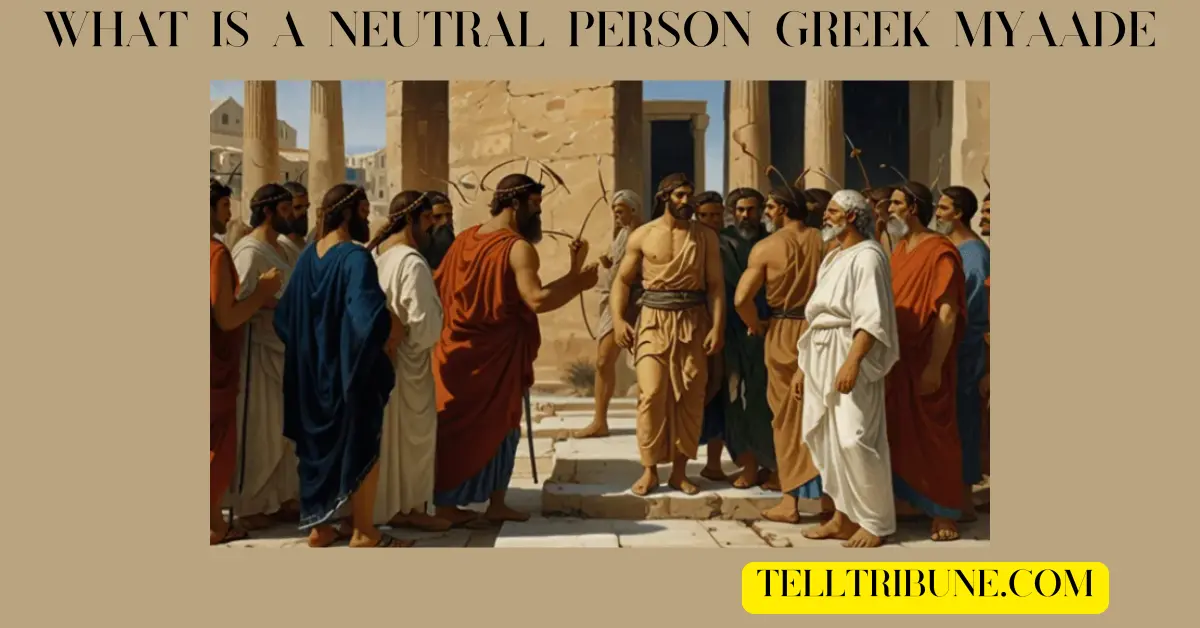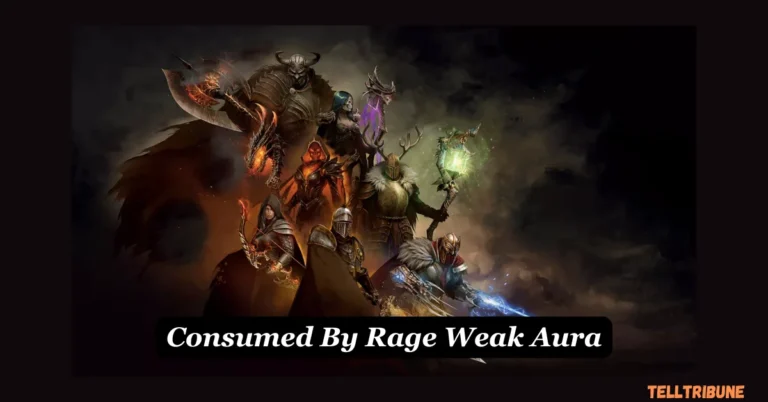What is a Neutral Person Greek Myaade: Exploring Balance and Harmony
Neutrality has held various meanings across cultures, ideologies, and individual philosophies. In ancient Greek culture, where philosophical debates were prevalent, neutrality was often intertwined with ideas of balance, virtue, and the middle path. Today, when we inquire about what is a neutral person Greek myaade, we are delving into a multifaceted concept that ties ancient Greek thought with modern interpretations of neutrality in human behaviour and social interactions. This term, Greek Myaade might not be widely recognised in mainstream discussions, but it offers a unique perspective on personal identity and neutrality when explored deeply. To fully understand what is a neutral person Greek myaade, we need to examine its roots in Greek philosophy, its possible modern-day significance, and how it applies to the behaviours of individuals today.
The Foundation of Neutrality
Neutrality is not taking sides or remaining impartial in conflicts, debates, or decisions. It represents a balanced stance where a person neither favors nor opposes any particular viewpoint. But what is a neutral person Greek myaade in its truest sense? The term embodies a person who seeks harmony by balancing extremes, drawing inspiration from ancient Greek ideals of moderation and self-awareness.
Neutrality in Greek Philosophy
Ancient Greek philosophy has long emphasized the importance of balance. Philosophers like Aristotle and Socrates believed that living a virtuous life involves striking a middle ground and avoiding excesses or deficiencies. What is a neutral person Greek myaade if not someone who follows these teachings? Such individuals are not indifferent but instead discerning, evaluating situations objectively before forming opinions or actions.
The Greek Connection in “Neutral Person Greek Myaaed”
The phrase “neutral person Greek myaaed” might seem mysterious, but its Greek connection sheds light on ancient ideas of balance and harmony. Ancient Greek philosophers like Aristotle championed the concept of the “Golden Mean,” a state of balance between two extremes. For example, bravery lies between recklessness and fear, much like neutrality sits between agreement and disagreement. A neutral person in the context of “Greek myaaed” could embody these teachings, striving for fairness in all aspects of life. The Greeks believed that achieving balance wasn’t just a personal goal but a way to improve society as a whole. Applying this wisdom today, neutrality becomes a tool for solving problems and building stronger relationships.
The Essence of “Greek Myaade”
The phrase “Greek myaade” adds cultural depth to the concept of neutrality. What is a neutral person Greek myaade? Myaade, often associated with introspection and thoughtful consideration, suggests that such a person approaches life with calm deliberation. They embody a unique blend of rationality and empathy, ensuring their neutrality is constructive rather than passive.
Characteristics of a Neutral Person Greek Myaade
A neutral person Greek myaade is distinct in their traits. But what are these traits? Let’s explore what defines what is a neutral person Greek myaade:
- Empathy: Understanding all sides without bias.
- Rationality: Making decisions based on facts rather than emotions.
- Composure: Remaining calm and unaffected by external chaos.
- Wisdom: Drawing from Greek philosophical teachings to navigate complex situations.
These traits make what is a neutral person Greek myaade an effective mediator and a valuable contributor to fostering peace and understanding in various spheres of life.
What Is Myaaed, and How Does It Relate?
Now, let’s explore the “myaaed” part of the phrase. While it might not have a direct translation, it feels like a modern or abstract term representing balance, thoughtfulness, or fairness. In this sense, “Greek myaaed” could symbolize an approach to life inspired by Greek values of harmony and moderation. Imagine myaaed as a guiding principle that helps a person remain calm and impartial in challenging situations. Just as the Greeks aimed for balanced thinking, myaaed might encourage us to embrace neutrality as a means of fostering peace and understanding in our daily lives.
Neutrality and Its Application to Modern Society
In today’s fast-paced, polarised world, what is a neutral person Greek myaade might refer to an individual capable of distancing themselves from the extremities of modern-day arguments, debates, and conflicts? The modern interpretation of neutrality has expanded beyond philosophical discussions to include personal, social, and political realms. A neutral person in today’s society is not easily swayed by popular opinion or the biases of others. They are seen as impartial, fair, and rational, often offering a grounded perspective that can cut through the noise of emotional or partisan debates. Moreover,What is a Neutral Person Greek Myaade in contemporary settings often involves listening to both sides of a conflict, understanding the underlying issues, and acting to benefit the greater good rather than adhering to one extreme viewpoint.
Read More: iofbodies.com applications
Challenges of Being Neutral: The Hidden Strength in Balance
While neutrality sounds ideal, it’s not always easy. A neutral person often faces challenges, especially when others misunderstand their intentions. People might think a neutral person is avoiding responsibility or lacking opinions, but the truth is quite the opposite. Staying neutral requires courage. It means standing firm when others demand that you choose a side, especially in emotionally charged situations. For example, if two family members argue about a decision, staying neutral may involve finding a middle ground that benefits everyone, even if it’s difficult.
How to Cultivate Neutrality
To embody the qualities of what is a neutral person Greek myaade, one can practice the following:
- Self-Reflection: Regularly evaluate personal biases and strive for objectivity.
- Active Listening: Understand different perspectives without immediate judgment.
- Mindfulness: Stay present and avoid getting swayed by emotions.
Neutrality and Emotional Intelligence
Neutrality is closely tied to emotional intelligence. What is a neutral person Greek myaade if not someone who understands their emotions and manages them effectively? They approach conflicts with empathy, ensuring that their neutrality fosters positive outcomes.
Neutrality in Mythology: Inspiration from Greek Stories
Greek mythology offers timeless lessons about neutrality. One example is Hermes, the messenger god, who often acted as a mediator between conflicting parties. Unlike other gods who took sides in human affairs, Hermes maintained impartiality, ensuring fair communication and resolution. Stories like these remind us that neutrality isn’t about avoiding involvement; it’s about bringing clarity and fairness to difficult situations. A neutral person Greek myaaed carries this legacy forward, embodying the wisdom and balance that the Greeks cherished.
The Psychological Aspect of Being Neutral
From a psychological perspective, being neutral or impartial has intriguing implications for mental health and personal well-being. What is a neutral person Greek myaade, in this sense, could be interpreted as someone who maintains emotional equilibrium, avoiding extremes in their emotional reactions. Such individuals are less likely to be affected by stress, anxiety, or anger, as they can detach themselves from highly charged situations and view them with clarity. Neutrality, however, does not imply indifference or a lack of emotion. Instead, it is about managing emotions to allow for rational decision-making and empathy. A neutral person in this context is someone who, even in the face of adversity, can remain composed and thoughtful, using logic and reasoning to navigate challenges.
Neutrality in Relationships and Conflict Resolution
In personal relationships, a What is a Neutral Person Greek Myaade might be someone who refrains from playing the role of a mediator or a judge in every conflict but instead encourages communication, openness, and compromise. Neutrality in relationships is about maintaining fairness, ensuring that all voices are heard and no one dominates the conversation or the decision-making process. For example, in familial or workplace disputes, a neutral person would focus on resolving issues by facilitating dialogue between the conflicting parties.
Applying Neutrality in Everyday Life
Neutrality might sound like a grand concept, but it can be practiced in simple ways every day. For example, if your siblings argue about which game to play, suggest taking turns or picking a game everyone enjoys. At school, if friends debate a topic, offer a perspective that highlights common ground. By applying the principles of a neutral person Greek myaaed in your life, you’ll find that relationships improve, arguments become less stressful, and decision-making feels easier.
FAQs
What does “Greek myaade” mean?
“Greek myaade” refers to a concept of balance and neutrality, inspired by ancient Greek philosophy, emphasizing harmony, fairness, and thoughtful consideration in decision-making and relationships.
How does neutrality relate to Greek philosophy?
Greek philosophers like Aristotle championed the idea of balance and moderation, where neutrality is seen as finding a middle ground between extremes, such as bravery between recklessness and fear.
What traits define a neutral person Greek myaade?
A neutral person Greek myaade is empathetic, rational, composed, and wise, aiming to maintain fairness and balance in all aspects of life.
Can neutrality improve conflict resolution?
Yes, neutrality helps by fostering understanding, encouraging communication, and facilitating fair solutions without taking sides in conflicts.
Is being neutral difficult?
Being neutral can be challenging, as it often requires standing firm in emotionally charged situations, but it is a strength that promotes fairness and thoughtful decision-making.
In Short
neutral person Greek myaade embodies balance, fairness, and thoughtful consideration, drawing from ancient Greek philosophical ideals. By striving for moderation and empathy, such individuals can navigate conflicts, foster understanding, and contribute to a harmonious society, both in personal relationships and broader societal interactions.
Stay Connected: Telltribune.com






